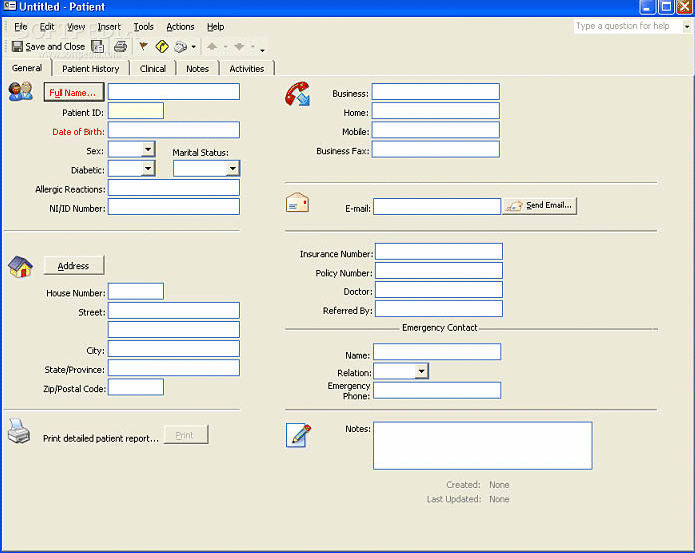Question
1: Privacy laws and regulations require medical facilities to take measurable
steps to ensure the confidentiality of patient information. From this case
study, can you tell what Denver
Health has done to ensure the confidentiality of its patient information?
Denver Health did create security measures
to ensure that only the proper people can access the information. Doctor’s and
nurses when they first arrive to work they sign on by inserting a smart card
which contains that doctors or nurses credentials, once the smart card is
inserted the end user still also has to supply their login and password. The
help ensures that if a card is lost or stolen a random person or a different
doctor or nurse is not able to use and look at other patient information.

Question
2: Think about your school, how could it use the ThinIdentity solution to
support the technology needs of (1) faculty and (2) students such as yourself?
It can help institutions allocate
consumption of resources (chargeback) by different services or departments to
better prioritize IT spend. By taking advantage of the private cloud across
servers, desktops, and applications, education institutions can:
-
reduce cost. Help reduce
physical server sprawl and total cost of ownership of hardware
-
simplify desktop management.
Provide optimal desktop solutions for different user needs, while reducing IT
complexity
-
improve access to applications.
Help increase academic institution agility through on-demand access to
applications, and enable anywhere access for students and faculty
-
integrate technologies.
Minimize application and OS compatibility issues.
For student, ThinIdentity can help to
facilitate the dynamic learning, teaching, and research activities in a
university. It centralized the computing and storage resources, this gives a
great convenience to schools and department across university to self-provision
computing environment, enable lecturers and students to easily access to the
necessary information immediately and efficiently.
Both students and faculty could use it for
quick access to student records. As a student I could then see if what classes
are open, if any are available to audit, etc. all from the thin client. It
would also allow for the faculty to have greater manageability.
Question3:
In thinking about cloud computing (focusing on the public cloud), what role
could it play in business continuity planning for Denver Health? That is , how could the public
cloud act as a backup for Denver
Health’s private cloud?

When disaster strikes the company, and data “lost,” the public cloud can help in a less costly way than having servers at a separate site. Data on the cloud is delivered through a web portal belonging to a cloud service provider. The only expense is that of the resources consumed. This is how public cloud act as a backup for Denver Health’s private cloud.
Overall, the future of cloud computing and storage is a strong and solid one. Denver Health should be aware of not entering a long-term agreement with a cloud provider. A benefit of cloud storage is that you can switch companies if a better deal becomes available. The information is not locked to one carrier, if a firm decides to switch. Additionally, in order to minimize a recovery phase, the hospital should be sure to use a cloud provider that has a fast recovery phase. Much research should be done before any major decision is made, but there are definitely solid reasons to use the public cloud as a backup for Denver Health’s private cloud.
Question 4
If Denver Health were to give each patient a smart card, log-on name, and password, which functions, features, and information could benefit patients? What security would have to be in place to ensure that patients have access to only their own information?

Patients would be able to look at their own personal patient history such as office visits, test results, prescriptions, anything that is related to that patient. Patients could also then utilize the tool to see if and when their doctor is going to be in the office and try to schedule a visit. Denver Health could also take it one step further and allow for patients and the doctors to interact. With a patients history right there if a patients is asking questions or looking at symptoms doctors would be better able to diagnose for minor ailments not requiring an office visit from the patient.
There would still have to be security measures in place. Each user would have to have their own login and password. This would be similar to what is in place with online banking. Many customers bank, but with their login information they are only able to access their own accounts and not another customers.
Question 5
How could Denver Health extend the ThinIdentity solution beyond its brick-and-mortar walls? How would it work (i.e., need to change) to have doctors and nurses log on from home or use a mobile device such as a Blackberry or iPhone?

Denver Health could expand ThinIdentity outside of its brick-and-mortar walls, Denver Health could expand their solution to users with smartphones. If Thinidentity is going to be utilized on a smartphone Denver Health is going to have to create an application that allows for only registered users to access, or create a VPN connection on the device and then only be able to access ThinIdentity from behind the VPN.
Question 6
The reduction in physician log-on time is an efficiency metric. What are some effectiveness metrics that could justify Denver Health’s use of ThinIdentity?

I think Denver Health could take a look at employee satisfaction as one of their metrics. It will be essential that the nurses, doctors and everyone else who is using ThinIdnentity has a positive view of it. If ThinIdentity is well liked the users are going to be more inclined to use it the way that Denver Health wants them to.
Denver Health will also want to look at how ThinIdentity impacts their long-term objectives. Has the implementation created better patient care, is Denver Health realizing more dollars per patient, or doctors seeing more patients.

No comments:
Post a Comment